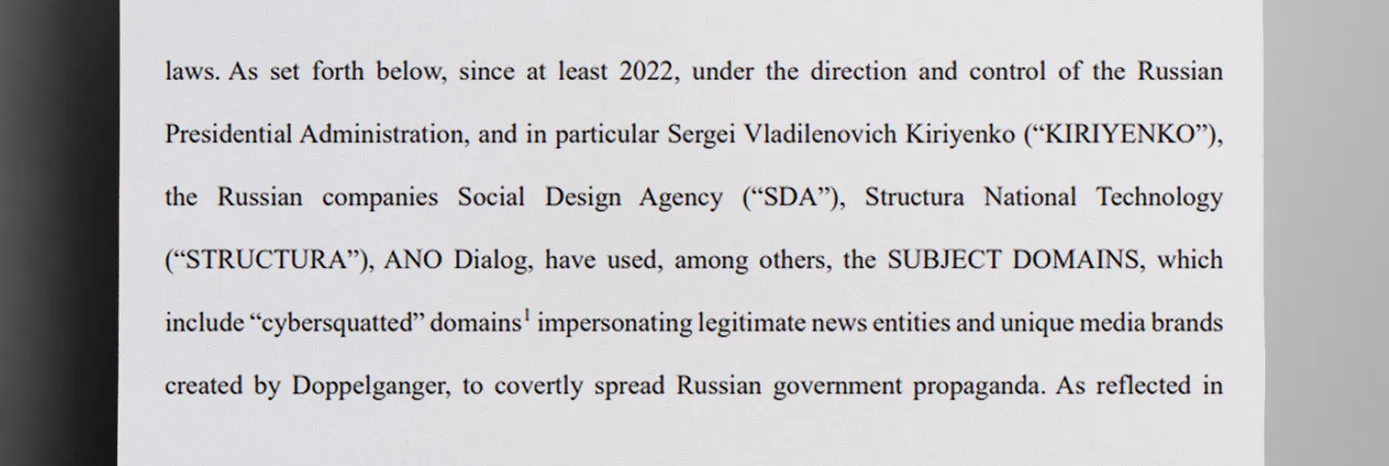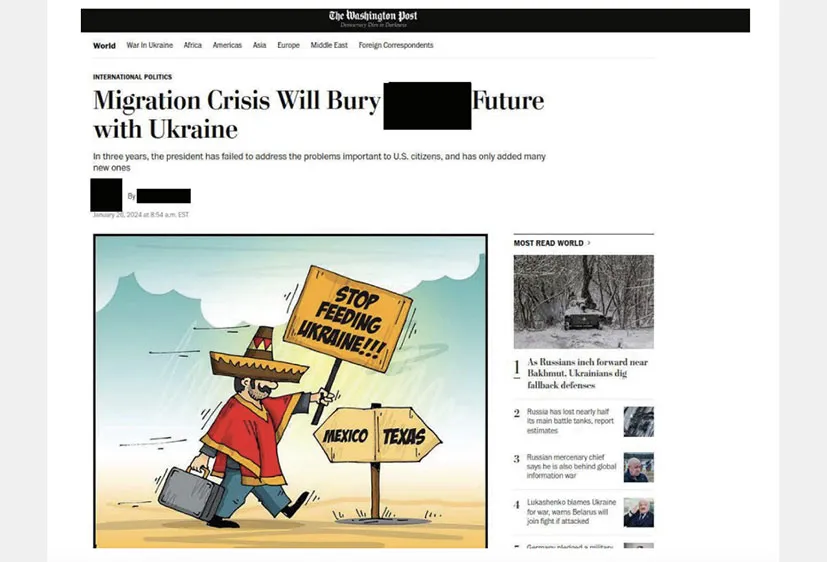Feds Seize Domains Allegedly Owned by Russian Malign Influencers

The DOJ announced on Sept. 4 that it had seized 32 internet domains used by media influencers to allegedly orchestrate the Russian malign influence campaign “Doppelganger,” according to a DOJ press release.
‘A Covert Campaign’
“The Justice Department is seizing 32 internet domains that the Russian government and Russian government-sponsored actors have used to engage in a covert campaign to interfere in and influence the outcome of our country’s elections,” said Attorney General Merrick B. Garland in the press release.
Since 2022, companies like ANO Dialog, Social Design Agency (SDA) and Structural National Technology (Structura) were allegedly controlled by Russian President Vladimir Putin and his First Deputy Chief of Staff Sergei Vladilenovich Kiriyenko, who used the companies to spread Russian propaganda, according to the affidavit. By doing this, they aimed to influence U.S. and other foreign voters, reduce international support for Ukraine and prop up pro-Russian interests and policies without making it apparent that Russia was involved.

The Doppelganger campaign allegedly used “cybersquatted” domains to influence American public opinion. Cybersquatting refers to the practice of creating domains that impersonate other news sites. In the case of Doppelganger, those news sites included The Washington Post and other reputable media brands.
The campaign allegedly used worldwide social media influencers, paid advertisements and artificial intelligence (AI) to drive views of fake sites. They also created fake American and non-Russian social media profiles to spread the cyber-squatted domain links through post comments to trick viewers into believing they were being directed to legitimate news sites, say prosecutors.

An example of a cybersquatted domain registered by the Doppelganger campaign is the “washingtonpost.pm” domain, which was meant to mimic the “washingtonpost.com” domain, as explained in Exhibit 1. Several of these domains were used to trick viewers into believing false information.

On the same day the DOJ seized the 32 domains, the Treasury’s Office of Foreign Assets Control (OFAC) designated ten individuals and two entities, according to a Treasury press release. OFAC alleged that Russian state actors used generative AI, deep fakes, and other forms of disinformation to undermine confidence in American elections and institutions.
Some of these Russian state-sponsored actors are executives at RT, formerly known as Russia Today, a Russia-funded and controlled media outlet. RT allegedly used an American-based front company to generate and spread pro-Russian content while disguising their involvement, as detailed in the Treasury press release.
Charges against two Russian national employees at RT– Kostiantyn Kalashnikov, 31, and Elena Afanasyeva, 27– were unsealed on Sept. 4 for conspiracy to violate the Foreign Agents Registration Act (FARA) and commit money laundering, according to a DOJ press release and further reported by The Daily Muck.
The Doppelganger campaign allegedly also targeted other countries like Germany, Mexico and Israel to undermine U.S. relations with them, according to prosecutors. The FBI’s Philadelphia Field Office is still investigating the case.
Discover More Muck
International Cyber Op Wipes Chinese Malware From Thousands of Computers
Report Strahinja Nikolić | Feb 27, 2025

Government to Crack Down on Foreign Adversaries Stealing Americans’ Personal Data
Report Matthew Koelher | Feb 10, 2025

Wannabe Hizballah Recruit Indicted for Lying to the FBI
Report Jessika Saunders | Feb 6, 2025

Weekly Muck
Join the mission and subscribe to our newsletter. In exchange, we promise to fight for justice.
Weekly
Muck
Join the mission and subscribe to our newsletter. In exchange, we promise to fight for justice.




